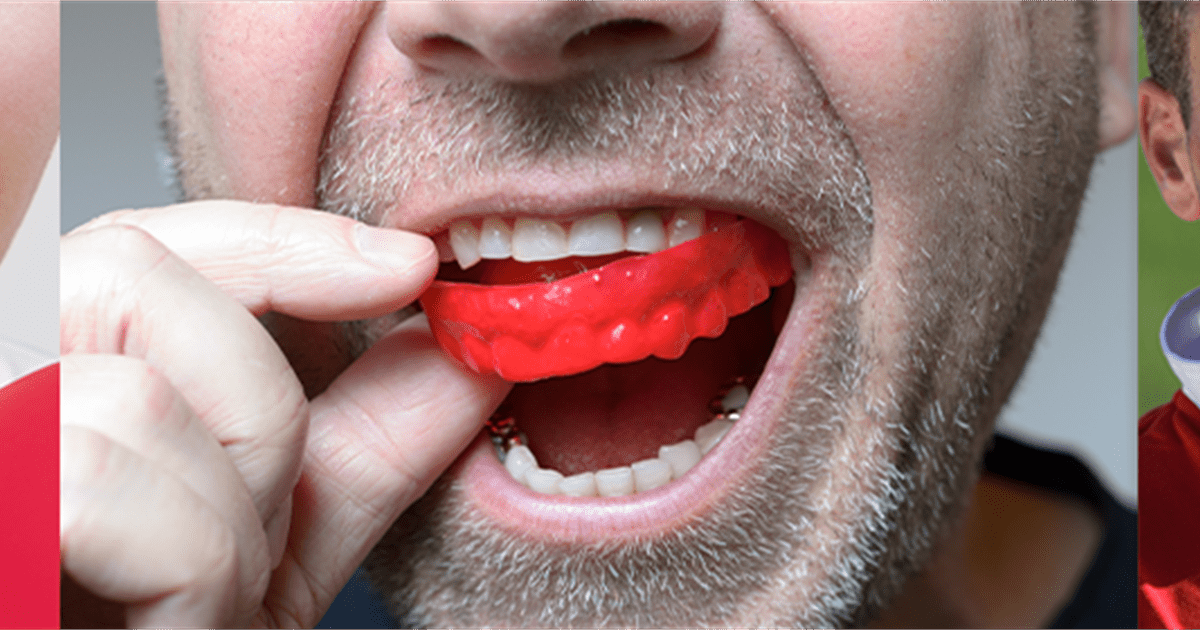
[ad_1]
Many sports pose a potential danger for your mouth and teeth when there is a chance of other people, or objects, coming into contact with them. This is just as true for non-contact sports as it is for those sports that have contact.
Looking after your mouth and oral health when playing sport is important. The good news is that during this time, there are some easy and effective steps to help protect your teeth and gums and keep your smile safe.
Common mouth injuries in sport
Between 13% and 39% of all dental injuries in the UK are linked to accidents during sport and it also accounts for around 25% of children injuring or losing front teeth.
Contact sports are increasingly popular which has resulted in a rise of traumatic dental injuries.
Common sporting injuries that can put your mouth at risk include:
- Soft tissue injuries to lips and gums (cuts, bruises etc).
What to do when things go wrong
If a tooth comes out because of injury when playing a sport, it is important to act fast. If you can find the tooth and it is clean, put it back into the socket yourself.
If you can’t put it back, put it straight into a cup of milk or keep it in your mouth. It’s also important you perform the following steps:
- Go to a dentist or hospital as soon as possible.
- Take painkillers if you need to, but don’t take any medication containing aspirin as this can cause the bleeding to get worse.
- Don’t hold the tooth by the root, as teeth are surrounded by fragile ligaments which need to be kept intact if the tooth is to be put back in.
- Don’t clean the tooth with disinfectant or water, or let it dry out.
- Don’t put aspirin or clove oil on the wound.
The sooner the tooth is replaced, the better the chances of success. If you have not managed to do it yourself, the dentist will put the tooth back. They may use a dental splint to fasten the tooth against the teeth on either side.
In most cases this is successful, and once the splint is removed the tooth is stable. However, you will almost certainly need more treatment in the future.
Using a mouthguard to keep your smile safe
Mouthguards are an essential piece of athletic equipment for anyone participating in a sport that involves falls, body contact, or fast-moving objects. This advice is true for team sports such as football, basketball, baseball, and hockey. A mouthguard is also recommended for individual activities such as skateboarding, gymnastics, mountain biking, or generally any physical activity that might result in an injury to the mouth.
Research shows that athletes are 60 times more likely to suffer harm to the teeth if they do not wear a mouthguard. Because of this, mouthguards are recommended for anybody involved in regular sport.
It is essential that you visit your dentist when considering a mouthguard. They will be able to take very detailed impressions of your mouth so that the mouthguard fits comfortably and is able to protect your teeth and gums.
It is not advised to use mouthguards without advice from your dentist.
If you use a mouthguard that has not been specially made for you, there is a greater risk of having problems. You could experience headaches and jaw pain. There might also be tooth and gum damage and general soreness in your mouth.
That’s why it is always safer to visit your dentist.
Maintaining good oral health when using mouthguards
When you have had your mouthguard custom fit for you by your dental practice, there are a few quick steps to care for it. Following these steps will help keep your mouth healthy and reduce the risk of disease.
- Because they are placed in the mouth, it is always important to keep your mouthguard clean. If you do not clean it regularly, bacteria will build up and could lead to an infection or bad breath.
- You should clean a mouthguard after every use. Your dentist will be able to advise you on how best to clean your mouthguard.
- Always allow your mouthguard to dry after cleaning it. This will help reduce bacterial growth. Keep your mouthguard in the container provided.
- If you drop your mouthguard or it falls on the floor, clean it before putting it back in your mouth.
- Brush your teeth with a fluoride toothpaste and clean in between them with an interdental brush or floss before and after wearing your mouthguard.
- Never share your mouthguard or use somebody else’s.
- Remember to take your mouthguard with you to dental check-ups. Your dentist can give it a deep clean and make sure it is still a good fit for you.
More information
[ad_2]
Source link








